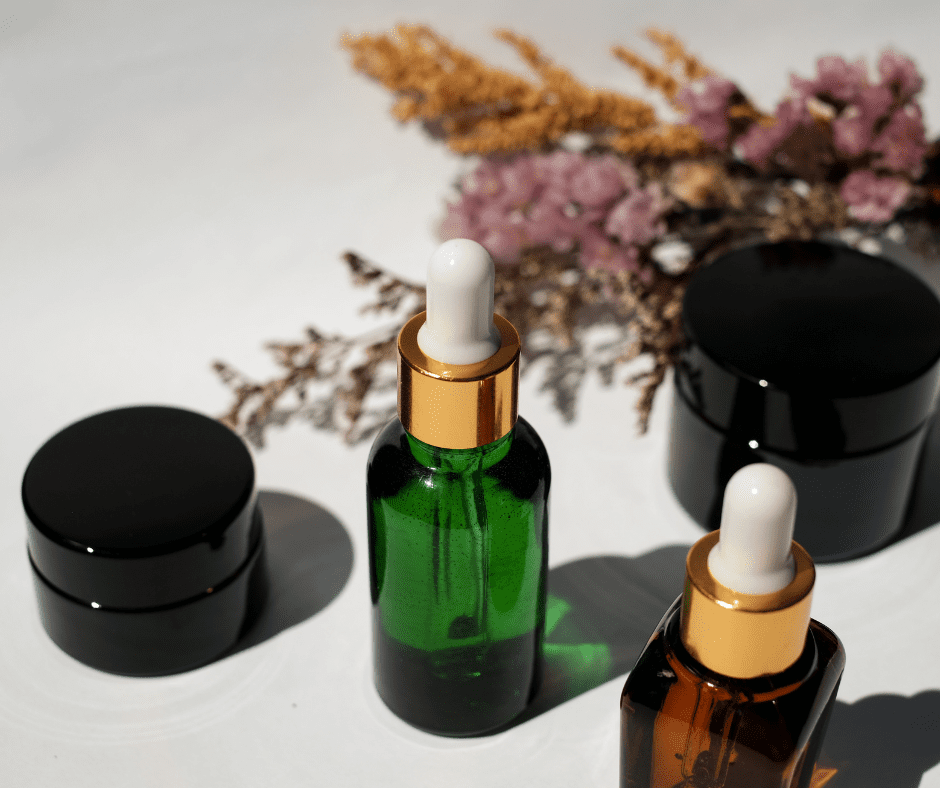
Cosmetic containers play a crucial role in maintaining the quality, efficacy, and shelf life of beauty and skincare products. Whether you’re a brand owner or a product designer, understanding the importance of choosing the right packaging for cosmetics is essential to ensure product longevity and consumer satisfaction.
Why Cosmetic Containers Matter for Product Longevity
Cosmetic containers serve as a protective barrier between the product and external environmental factors like light, air, and bacteria. Without the appropriate packaging, cosmetic products may degrade quickly, reducing their shelf life and compromising their quality. The right container can help preserve the formulation’s integrity, ensuring that consumers receive the benefits they expect from your products.
For example, airless cosmetic containers are ideal for creams and serums, as they prevent air from oxidizing the product. Frosted glass cosmetic containers are another option, offering protection from UV light, which can break down active ingredients in skincare and beauty products.
The Role of Packaging Materials in Preserving Product Quality
Different materials used in cosmetic containers can significantly affect product stability. Here’s how:
- Glass Containers: These are popular for luxury cosmetic products due to their ability to preserve volatile ingredients. Glass is non-reactive and provides excellent protection against air and moisture. Frosted glass, in particular, shields the product from light, preventing the breakdown of sensitive ingredients. If you’re targeting high-end consumers, glass cosmetic containers are a sustainable and premium choice.
- Plastic Containers: Lightweight and versatile, plastic cosmetic containers are widely used across the beauty industry. PET and HDPE plastics are commonly used because they provide adequate protection and are more cost-effective. However, these containers may not provide the same level of protection against UV light as glass containers do. Plastic cosmetic containers are ideal for mass-market products where cost and convenience are key considerations.
- Metal Containers: Often used for balms and solid perfumes, metal cosmetic containers provide excellent durability and can be customized for a high-end look. They also offer robust protection from environmental factors, extending the shelf life of products that may be prone to oxidation.
Choosing the Right Cosmetic Container for Your Product
Selecting the right cosmetic containers depends on several factors, including the type of product, the ingredients used, and the target market. Here are some considerations when choosing containers:
- Compatibility with Ingredients: Some ingredients are sensitive to light or air, requiring opaque or airless containers. For example, vitamin C serums are highly susceptible to oxidation and should be stored in airtight, opaque cosmetic containers.
- Design and Branding: The aesthetics of cosmetic containers should align with your brand image. Luxury brands often choose glass containers to reflect the high-end nature of their products. Meanwhile, eco-friendly brands may opt for recyclable or biodegradable packaging materials.
- Sustainability: As consumers become more eco-conscious, the demand for sustainable cosmetic containers is growing. Recyclable materials, reusable containers, and reduced plastic use are all important trends in the beauty packaging industry.
The Importance of Cosmetic Containers in Marketing
Beyond protecting the product, cosmetic containers also serve as a vital marketing tool. The look and feel of the packaging can influence a consumer’s purchasing decision, making it crucial to invest in well-designed containers. Transparent cosmetic containers, for instance, allow consumers to see the product inside, building trust and encouraging sales. On the other hand, frosted or opaque containers evoke a sense of luxury and exclusivity, appealing to high-end consumers.
How Cosmetic Containers Help Extend Shelf Life
The shelf life of cosmetics can be impacted by exposure to air, moisture, light, and bacteria. Well-designed cosmetic containers can minimize these factors and help prolong the usability of the product.
- Air-Tight Seals: Cosmetic containers with airtight seals prevent the product from being exposed to air, which can lead to oxidation and spoilage. This is especially important for organic and preservative-free formulations, where the lack of synthetic preservatives makes them more prone to degradation.
- UV Protection: Light-sensitive ingredients, such as retinol, antioxidants, and certain essential oils, require containers that block or filter UV rays. Frosted or tinted cosmetic containers are ideal for protecting such products from light exposure.
- Moisture Control: For products that are sensitive to moisture, such as powders and loose pigments, airtight cosmetic containers are necessary to keep the product dry and prevent clumping or spoilage. Containers with desiccants or moisture-absorbing seals are also an excellent option for such formulations.
The Future of Cosmetic Containers: Innovation and Sustainability
With sustainability becoming a driving force in the beauty industry, the demand for eco-friendly cosmetic containers is at an all-time high. Brands are increasingly turning to recyclable and reusable materials to reduce their environmental impact. Biodegradable cosmetic containers made from plant-based plastics or other sustainable materials are being explored as an alternative to traditional packaging.
In addition to environmental concerns, technological innovations in packaging are helping to extend the shelf life of products. Advanced airless cosmetic containers and containers with UV-blocking technologies ensure that the active ingredients in formulations remain potent for longer periods.
Conclusion
Choosing the right cosmetic containers is a critical aspect of ensuring product shelf life and quality. Whether you’re using glass, plastic, or metal, the materials you choose must align with the formulation of your product and the needs of your target consumers. Moreover, as sustainability becomes increasingly important to consumers, investing in eco-friendly cosmetic containers can help build brand loyalty and support long-term success. By understanding the impact that packaging can have on product quality, brands can make informed decisions that not only protect their formulations but also elevate their market presence.